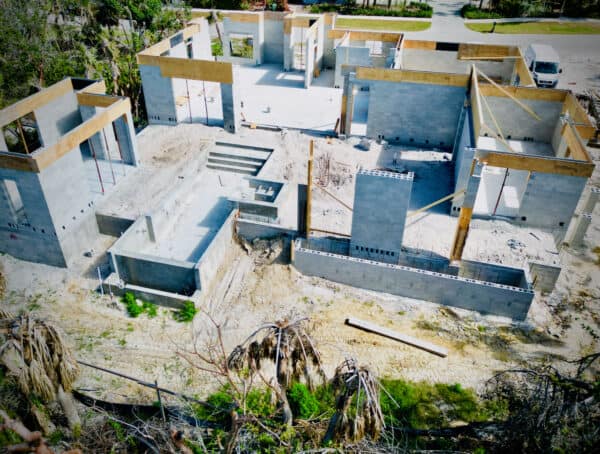
default
In recent days, Elon Musk tweeted that “commercial real estate is melting down fast. Home values next,” in response to a Tweet about the rapidly declining value of office real estate in Los Angeles and San Francisco, which is selling for less than the amount of debt on them. Warning bells are ringing in big cities where buildings are unable to lease space and loans are coming due in a high-interest rate environment. Some observers are concerned that
While residential is doing better, high-interest rates are hitting this sector of real estate as well. Everyone is waiting for lower rates, but no one really knows when the Fed will feel compelled to pump the brakes on rate increases
Commercial real estate is melting down fast. Home values next.
— Elon Musk (@elonmusk) May 29, 2023
Recently, CI connected with Craig Cecilio, the co-founder and CEO of DiversyFund, who has 25 years of experience in the real estate industry, having managed over 1000 deals in both residential and commercial real estate, according to his bio. Diversyfund offers individuals the ability to invest in institutional quality properties r for either single property opportunities or a fund. We asked Cecilio to share what he is seeing in the market and his expectations for the coming year. Below is our conversation.
Commercial real estate is taking a hit due to ‘work from home’ (WFH) and very high-interest rates. In some markets there are huge amounts of unoccupied space. What are your thoughts on this?
Craig Cecilio: Interest rates affect valuations of all asset types, so, of course, commercial real estate is impacted. I think your question is more geared toward the office investment type, which we are not exposed to. Since the pandemic, there has been a major behavioral change in employees. We may never see full time office attendance in certain cities, and these assets may never fully rebound. The market is resilient, however, and someone will figure out a new highest and best use for office space in these Metropolitan cities.
Additionally, add the increasing cost of daycare; where we have the highest costs in the world, you can see how a WFH culture can benefit employees. I fear these markets may never rebound.
What are you seeing in regard to Commercial Real Estate performance? Are you seeing a higher amount of defaults?
 Craig Cecilio: There have certainly been some big-name defaults where operators are giving the keys back to lenders, but this has so far been confined to highly distressed markets and primarily in downtown office. But CMBS default rates are climbing, and debt costs are putting pressure on all levered assets, so operators need to be especially cash conscious in this environment. Multifamily has been relatively resilient, and we feel there will be opportunities to purchase distressed assets at a discount or other creative financing plays as operators recapitalize.
Craig Cecilio: There have certainly been some big-name defaults where operators are giving the keys back to lenders, but this has so far been confined to highly distressed markets and primarily in downtown office. But CMBS default rates are climbing, and debt costs are putting pressure on all levered assets, so operators need to be especially cash conscious in this environment. Multifamily has been relatively resilient, and we feel there will be opportunities to purchase distressed assets at a discount or other creative financing plays as operators recapitalize.
We have three REITs that are actively managing our portfolio of properties. We sold four properties in the 1st half of 2022 that produced great returns. However, to temper expectations, those were a byproduct of a frothy market. Institutional investors are savvy and usually know how to navigate market fluctuations, even though some of these operators may have interest rates rise on them, we still find the multifamily sector rather safe. There will be opportunities for those who have cash to swoop in and buy properties and/or partner with distressed Operators. Blackstone raised over $30 billion for an opportunity fund in the multifamily sector to take advantage of these opportunities. Another institutional investor squeezing the Ma and Pa investor.
Do you predict any challenges when loans are due and they need to be refinanced?
Craig Cecilio: Yes, we are already starting to see this.
Underwriting standards are tightening significantly, especially on the heels of the banking crisis in Q1. Interest rates have risen across the board, and debt service coverage ratios are driving proceeds. As loans become due, it is increasingly likely that operators are going to have to go ‘cash-in’ and reorganize their capital stack with more equity. The volatility has also reached the hedging market as the costs to purchase in the money interest rate caps have risen. Cash will be king, and savvy investors will have to lean into their negotiating prowess. Depending on the operator, you are going to see some operators walk away.
So how is housing/multifamily? How is this market doing, and how is DiversyFund performing in this sector?
Craig Cecilio: Multifamily has been the most resilient of all the commercial real estate asset classes. From an operating perspective, it is still quite stable.
Obviously, this varies from market to market, but occupancy rates in the US are near their 10-year average of 93%, and profitability is growing as measured by Costar’s NOI index for the US. Multifamily has the ability to mark rents to market quickly, which increases the draw for investors as inflationary pressures are subdued.
We are performing well. We were net sellers in 2022, offloading four properties that produced great returns. In 2023 we are focused on hitting milestones on our asset-level business plans and focusing on becoming buyers as pricing continues to soften.
Remember, the greatest wealth transfers happen in times of market distress. Now, we have a platform for the everyday investor to be able to benefit and get a piece of the action.
[Yes], there will be some struggles for operators. Overall we are doing fine, our portfolio is solid, and we are focusing on becoming buyers.
What type of net returns are your funds generating today?
Craig Cecilio: Our product typically has a four to six-year horizon, so our strategy is usually to sell when the market is high, see 2021/1st half of 2022 and buy when the market is low, today and next few years.
The key is to make sure your rents are covering your expenses, wait out the downturn, and put yourself in a position to sell when the market rebounds. It would not be wise to sell today unless you have had a property for 10 years or more with low leverage. Even then, properties are not selling that high.
You offer both Reg A and Reg D offerings. Are you offering both debt and equity for investors?
Craig Cecilio: Our primary focus is growth equity. We have three REITs that are mid-cycle and some solid property exits in 2022. Concurrently we are offering an Opportunities Fund for Reg D investors. This fund may have some more flexibility in what types of investments will generate high returns for our investors, and it’s possible that it may include some mezzanine debt financing. It remains to be seen, but our focus is on what we know, which is purchasing and managing the value-add real estate.
We had some properties perform really well in 2022 and exited a few at the top of the market in 2022.
Which markets are performing better?
Craig Cecilio: We have seen some softening in the high-growth markets of the pandemic, and flows of people and jobs migrated out of coastal states into more business-friendly and lower-cost-of-living states. We still like the sunbelt markets like Texas, Arizona, the Carolinas, and Florida. We are also seeing some growth in certain Midwest markets as well, and we think these trends will continue.
What are your expectations for 2023? 2024? When will interest rates reverse?
Craig Cecilio: In terms of operating performance, we think multifamily will continue to be profitable as there is still high demand for housing in this country. All eyes are on the Federal Reserve and inflation, and it’s anyone’s guess what rates will go from here.
I tend to use cautious optimism here—frankly, the Fed will keep going until they see a couple of inflation prints that support a cut or pause. The market has priced in a cut or a pause later this year, and I don’t think the consensus is far off, considering the turbulence in banking and the layoffs in tech. It’s a blunt tool that always tends to break something. I think rates stabilize, and once we’ll again see an uptick in multifamily transactions.

